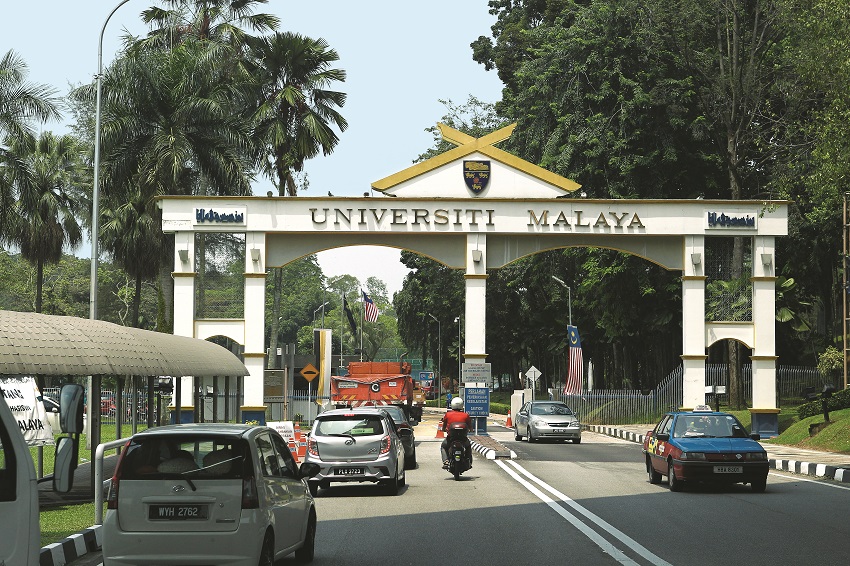 Universiti Malaya's funding was slashed by about 30% in the recently tabled budget, and the management is looking at different ways to generate revenue. – The Malaysian Insider file pic, November 9, 2015.As one of the public universities worst affected by cuts in government funds under Budget 2016, Malaysia’s oldest institution of higher learning, Universiti Malaysia (UM), has plans to boost its own income from other sources such as ventures into the plantation business.
Universiti Malaya's funding was slashed by about 30% in the recently tabled budget, and the management is looking at different ways to generate revenue. – The Malaysian Insider file pic, November 9, 2015.As one of the public universities worst affected by cuts in government funds under Budget 2016, Malaysia’s oldest institution of higher learning, Universiti Malaysia (UM), has plans to boost its own income from other sources such as ventures into the plantation business.
Assuring the public that fees for undergraduate courses would not increase, the varsity said it had other sources of income from its subsidiaries.
UM has embarked on joint ventures with public and private institutions to set up entities like the International University of Malaya Wales (IUMW), University of Malaya Centre for Continuing Education (UMCCed) and University of Malaya Specialist Centre (UMSC).
"University fees only contribute to a small percentage to the university’s operating budget. There are no substantial gains that can be derived from a hike in student fees.
"The management has also started to invest conservatively in a few lucrative sectors, namely in the plantation business towards the aim of being self sustaining in the near future.
"Currently, 30% of UM’s operating expenditure is funded by its business interests,” the university's administration said in a statement to The Malaysian Insider on its moves to cope with funding cuts to public universities under Budget 2016.
Nineteen of Malaysia's 20 public universities will face budget cuts in 2016, and UM is worst hit with its funding reduced to RM463 million, down by 27.3% or RM175 million, leading to concerns over hike in fees and other repercussions.
Other public universities that will see cuts of more than 20% in government funding are Sultan Idris Education University, Universiti Teknologi Mara and Universiti Malaysia Terengganu.
The budgets of another 11 public universities will be reduced between 10% and 20%, while four will lose up to 10% of their budget.
Putrajaya has only allocated RM13.378 billion for higher education next year, a drop of RM2.4 billion from last year's budget.
The new allocation is 5% of the total budget for 2016.
UM said it would explore the possibility of opening its medical degree programme to foreigners, due to huge demand for the course.
"There is a sizeable demand in enrolment for the medical degree programme and the management would like to extend its enrolment to foreign undergraduates. This move will also form part of efforts to internationalise the university.”
 The semi-government Universiti Malaya Medical Centre complex, run by Universiti Malaya, in Petaling Jaya. Some 30% of the university's expenditure is funded by its business interests. – The Malaysian Insider file pic, November 9, 2015.It said the push to generate more income for its operating expenditure was part of its aim to be self-sustaining by 2025.
The semi-government Universiti Malaya Medical Centre complex, run by Universiti Malaya, in Petaling Jaya. Some 30% of the university's expenditure is funded by its business interests. – The Malaysian Insider file pic, November 9, 2015.It said the push to generate more income for its operating expenditure was part of its aim to be self-sustaining by 2025.
“Ultimately the university wants to generate 50% of operating expenditure while the remaining 50% comes form the government’s allocation," it said in its statement.
A state duty
The UM Academic Staff Union (PKAUM), however, raised concerns the budget cuts went against the United Nations Educational, Scientific and Cultural Organisation (Unesco) charter on higher education, of which Malaysia is a signatory.
"It is an obligation of the state to fully support the operation of the universities. By having reduced funding it will affect universities' operations and goes against Unesco's recommendation," said PKAUM secretary Aznijar Ahmad Yazid, referring to Article 14 of Unesco's World Declaration on Higher Education on the financing of higher education as a public service.
"What is the rationale (behind the cuts)?," he asked, adding that the amount of money given to universities has been reduced since 2010.
"The area that will suffer the most would be environment of teaching.
"In order to operate, the university will need to reduce human resource requirement, modify development plans. It affects teaching performances and learning environment, research capabilities and the operation of the university," Aznijar added.
These cuts could manifest in difficulties in upgrading classrooms or disallowing staff to attend courses and conferences, he said.
Aznijar said it was not a university's business to find money.
"That is very irresponsible, like parents asking children to find their own money when it is their duty to support the children.
"That is not the main duty of university. Universities are not to make money, they are to serve the needs of society with research," he said, adding that PKAUM hoped Putrajaya would review the distribution of funds to universities and increase the quantum of allocation in line with Unesco's recommendations.
International Islamic University Malaysia (IIU) student representative council member Mohd Hafizudin Mohd Yahaya also said budget cuts would have an impact on students who received financial aid from the institution.
IIU will receive RM504 million next year, after an 8% cut in allocation.
And because public universities have been ordered not to raise its tuition fees despite budget cuts, other payments might increase, said Hafizudin.
"Like fees for residential colleges, transportation and fines on students who commit disciplinary offences." – November 9, 2015.

Comments
Please refrain from nicknames or comments of a racist, sexist, personal, vulgar or derogatory nature, or you may risk being blocked from commenting in our website. We encourage commenters to use their real names as their username. As comments are moderated, they may not appear immediately or even on the same day you posted them. We also reserve the right to delete off-topic comments